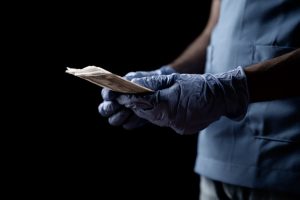 Biogen allegedly spent millions illegally inducing doctors to prescribe its multiple sclerosis drugs
Biogen allegedly spent millions illegally inducing doctors to prescribe its multiple sclerosis drugs
The Boston-based pharmaceutical company Biogen Inc. (NasdaqGS: BIIB) has agreed to pay $900 million to resolve a qui tam whistleblower’s claims that it paid neurologists “massive” kickbacks to coax them to prescribe its drugs for the treatment of multiple sclerosis. The kickbacks—which included millions of dollars in sham speaking and consulting fees—allegedly violated the Anti-Kickback Statute and the False Claims Act.
Marketing executive receives record $250 million whistleblower award
A former director of marketing at Biogen, the qui tam whistleblower will receive a whistleblower award of $250 million, or more than 29% of the recovery from Biogen, according to the settlement papers. Notably, that award is believed to be the largest whistleblower award paid by the federal government in history. The next largest award—of nearly $200 million—was paid to a whistleblower in 2021 for providing information that contributed to the success of enforcement actions by the CFTC.
Biogen’s MS drugs
MS is a chronic inflammatory disease of the central nervous system (the brain, spinal cord, and optic nerve) that occurs in four different forms, the most common of which is known as relapsing-remitting MS in which symptoms—including tremor, muscle weakness, cramping and rigidity, blurry vision, and impaired speech—wax and wane. MS is incurable, and in most cases causes permanent disability.
Biogen was an early leader in the development of MS treatments, and its interferon product Avonex was among the first biologics approved by the FDA for relapsing-remitting MS. Biogen also manufactured two other MS drugs—Tysabri and Tecfidera. However, Biogen found that it was losing market share as the FDA approved new, competing drugs, some of which were easier to administer than Biogen’s.
Sales propped up by “massive” kickbacks to high-prescribing doctors
The qui tam whistleblower joined Biogen as a sales representative, was promoted to senior marketing manager and eventually served as Director of Regional Marketing. In that capacity, he helped implement a two-pronged kickback scheme that he claimed Biogen allegedly developed to address the declining sales of its MS drugs.
First, the company allegedly identified neurologists who wrote the most prescriptions for MS drugs and paid them thousands of dollars to serve as unnecessary consultants or unneeded speakers—essentially cash gifts. Biogen also paid those doctors kickbacks in the form of expensive meals and travel to luxury resort destinations, the relator alleged.
The whistleblower described the alleged consulting scheme as a program developed by Biogen’s sales and marketing department, as opposed to the marketing research department, which planned legitimate consultant meetings. The topics of the sham meetings concerned the company’s MS drugs. As those drugs were well established, however, there was no legitimate need for additional medical discussion or consultation. Nevertheless, Biogen allegedly sponsored dozens of such sham consultant meetings, and thereby paid kickbacks disguised as consulting fees to hundreds of doctors.
Moreover, the doctors in question were targeted and selected by Biogen local sales reps based not on their academic affiliation or educational qualifications but, instead, on their prescribing volume and ability to influence their peers, the whistleblower alleged in his qui tam complaint.
Second, in addition to the sham consulting program, Biogen paid kickbacks in the form of inappropriate speaker training fees, according to the whistleblower. In particular, the whistleblower’s qui tam complaint claimed that the company paid speakers both for attending speaker training sessions and for delivering presentations—and, again, that those speakers were selected based on their ability to influence peer physicians and their prescribing volume rather than legitimate factors.
The whistleblower alleged that he raised concerns about whether these programs complied with the AKS with his supervisors and with Biogen’s Compliance Department. Biogen, however, failed to take corrective action. Instead, the whistleblower was demoted. He eventually left the company.
Biogen’s alleged AKS and False Claims Act violations
The whistleblower alleged that the physician inducements violated the AKS, which prohibits parties from paying or receiving anything of value in exchange for ordering, referring, or recommending items or services reimbursable by federal healthcare programs. Those programs include Medicare, Medicaid, the Children’s Health Insurance Program (CHIP), TRICARE, the Veteran’s Health Administration (VHA), and the Indian Health Service (IHS).
Due to the incurable and debilitating nature of MS, many patients rely on federal healthcare programs to help pay for their treatment. The whistleblower’s Biogen complaint estimated that about 50% of all payments for MS drugs are covered by Medicare, Medicaid, or other federal healthcare programs.
Significantly, prohibited “kickbacks” under the AKS include not just cash but also bonuses, bribes, payments above fair-market value, free services, and discounts. Moreover, reimbursement requests to federal healthcare programs “resulting from” AKS violations constitute false or fraudulent claims in violation of the False Claims Act.
The False Claims Act
The False Claims Act is the federal government’s primary tool against civil fraud. It was first enacted during the Civil War under the presidency of Abraham Lincoln and has been strengthened in recent years to provide whistleblowers with enhanced financial incentives as well as protection from retaliation.
Under the False Claims Act’s qui tam whistleblower provisions, private parties—known as relators because they relate or disclose information to the government—can file lawsuits on the government’s behalf and share in the proceeds. If successful, qui tam whistleblowers are generally entitled to whistleblower awards consisting of 15-30% of the funds recovered. Moreover, as in this case, False Claims Act recoveries can be sizable, as the Act imposes substantial liabilities including treble (three times) damages plus significant penalties.
If you have information about improper kickbacks or other potentially fraudulent activity by pharmaceutical companies, healthcare providers, or other entities reimbursed by or doing business with the federal government, contact healthcare whistleblower attorney Mark A. Strauss for a free and confidential consultation.
 The Whistleblower & Anti-Fraud Blog
The Whistleblower & Anti-Fraud Blog

